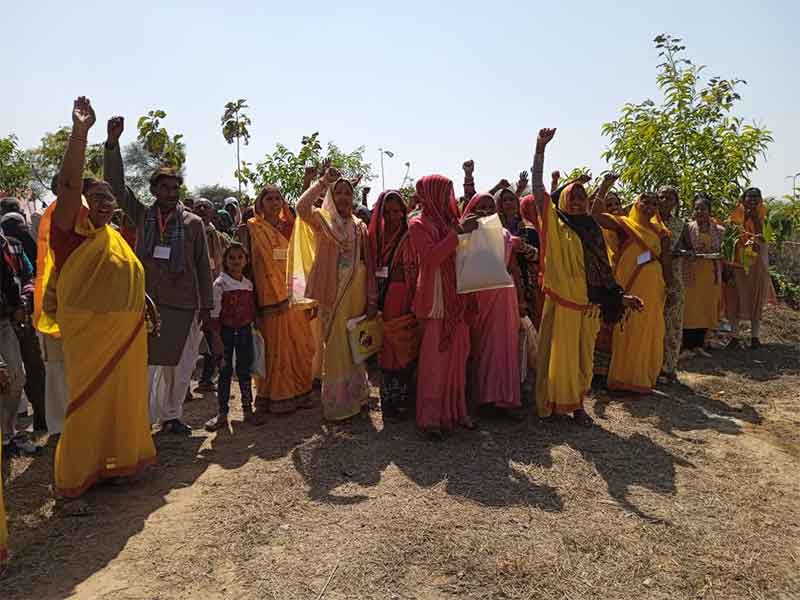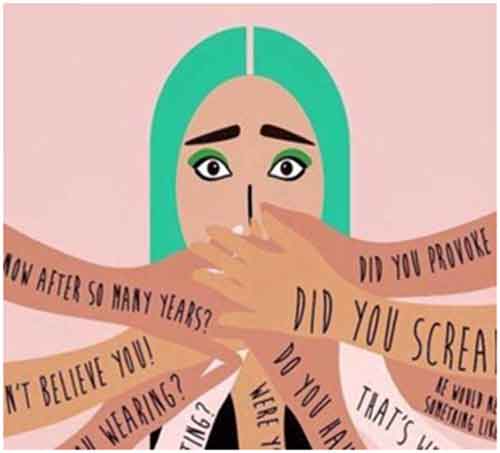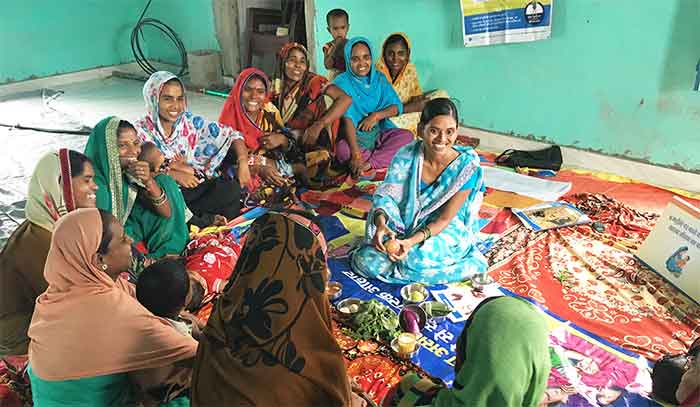Addressing the requirements arising out of Covid-19 Pandemic, in a populous country spread across the length and breadth, has received substantial economic, and social support from the self-help group(SHG)/Samuh members. Rising to these testing times, operational challenges like financial delays must be done away with, driving sustained empowerment of the most vulnerable.
Restructured in 2011, as DAY-NRLM(Deendayal Antyodaya Yojana-National Rural Livelihood Mission), aimed at a sharper, expedited approach at elimination of poverty, reaching closer to sustainable development goals through collective action for and by the rural poor households across the country.
Today across India, has 63 lakh Self Help Groups (SHGs) with seven crore women and their families linked to the program.
At the time when the first nationwide lockdown was announced by the Government of India due to the rising coronavirus cases, the country witnessed lack of manufacturing of masks ,sanitisers, PPE kits. On the other hand, millions of Indians had started migrating back home.
Amidst this, hundreds of SHGs across India started their tireless efforts, increasing the potential of manufacturing within the country, opening up avenues of work, curbing misinformation spread.
As per a report by the Ministry of Rural Development, over 132 lakh masks were produced by 14,522 SHGs, involving 65,936 members in 399 districts (across 27 states) from March 15 to March 30. A landmark achieved in under 15 days, community kitchens, working in tandem with district administration’s support catered to many in who were food insecure.
Women from Samuh, the samuh sakhis, emerged as the citizen leaders on ground.
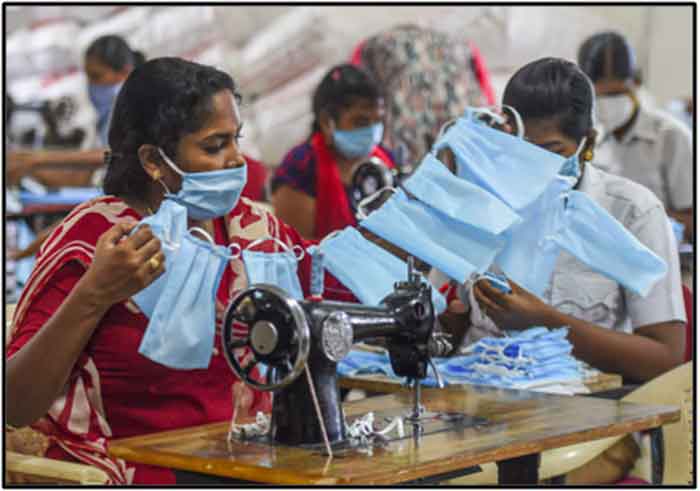
Fig1- SHG members at work in District Selam, Tamil Nadu
How has this setup of SHG collective provided such levels of confidence and ownership, where all of them have faced a vicious cycle of poverty, in the past. Often breaking their attitude & capability to visualize themselves also as contributing citizens of today.
A major reason are the 5 pillars on which the program is being built. With special focus given to equip the women from economically challenged background, the SHG once formed, focus on the components of-
- Institutional and capacity building
- Financial inclusion
- Livelihood promotion
- Social inclusion and development
- Convergence and systems
Is equally emphasised. Harnessing the potential, India derives multi faceted benefits for wholesome growth of society.
Bringing to light, in depth, the components on Financial Inclusion and Social Development.
In January 2020, the Reserve Bank of India published the National Strategy for Financial Inclusion 2019-2024 in a bid to integrate the country’s existing 190 million unbanked population into financial mainstream. Often poor credibility and unstructured groups, have been challenges to obtain capital for building livelihoods.
Understanding the critical role of good financial health on other development area outcomes like education, health, inequality reduction, the RBI laid out certain milestones, the foremost of which is to provide banking access to every village.
With varied demographics, limited understanding of financial management, it is not a task that can be effectively scaled by following solely a top-down approach.
The NABARD SHG Bank Linkage Programme, which is the primary conduit that links these SHGs with commercial banks, covers 124 million rural households.
Considering that a rural family is normally a unit of, say, five members, it rounds up approximately that half a billion Indians have been covered by this programme. These 124 million households hold close to Rs 260 billion worth of deposits with the Indian banking system, and have availed loans worth nearly Rs 1,000 billion, With only 2.3% remaining to be repaid.
SHG’s give incentives to the self motivated learners to lead and motivate others, the many experienced one’s who are conferred with responsibility of forming new groups and supporting the effectiveness of old groups are known as Samuh Sakhis. The hindi word Sakhi , meaning ‘friend’, undergoes further specialisation as based on various initiatives, especially requiring training arise.
On 21st May, the Uttar Pradesh Government announced a proposal to induct 58,000 Banking Correspondent Sakhis, one for every existing Gram Panchayat. Aimed at virtually establishing a one-stop solution for all banking needs of every local household at its doorstep.
The selection process has been designed keeping in mind the ubiquitous notions of merit such as leadership traits, courage to take the first step, the ability to deal with the new, and the potential to breach social barriers along with an entrepreneurial instinct, instilling confidence in women.
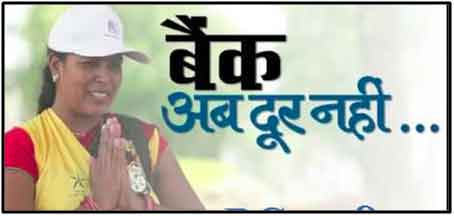
Speaking to Sumitra, a samuh leader in the aspirational district of Chitrakoot, where 30 Banking Correspondent Sakhis are training, the uncomfortability with respect to technology and finance reduces as each day of training proceeds. A gleam in eyes on using the tabs they hold carefully in hands.
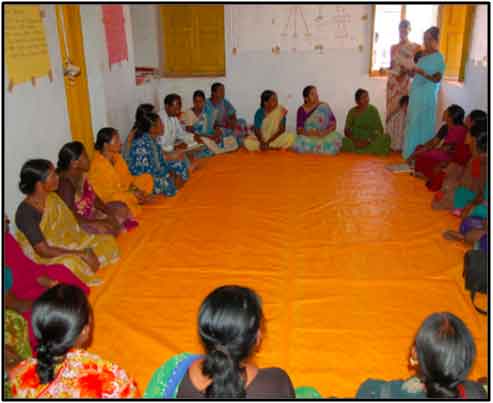
Fig 3- Weekly meetings (Taken from NRLM site, of Aug 2019)
As grassroots village-based financial collective, they have a life of their own in community action towards development.
SHGs have proven to be vibrant, participative, business-oriented and community-based institutions that have the potential to resurrect ailing rural economies. Often rising above the social stigmas when they are joined to serve a bigger issue like cleanliness of village, health and education. Even before the Covid-19 pandemic, state chapters like Kudambashree in Kerala, Jeevika in Bihar, Bihan in Chhattisgarh, and many more hold storied where collectives have carried out shram dan drives, started local milk bank to care for infants and expecting mothers, addressed issues of alcoholism, violence.
The running of an SHG is a great lesson in governance. Teaching the value of discipline, both financial and procedural, broadening vision of members. During their exposure to the groups, and with the outside world women are realising their potential to collectively address. While the base issues are the same, how we are dealing with them is different.
Paving the way forward:-
SHGs have proven to be an effective instrument for changing oppressive relationships at home, gender related, and in society. This is especially true for those relationships arising from caste, class and political power, which have makes it inaccessible to the poor a sustainable base for their livelihood and to grow holistically.
Now leading as entrepreneurs, they are transforming to diversify ventures, mentor thousands of others to get on the path of entrepreneurship, aggregate into value chains and are proof that investing in rural women entrepreneurs can be a solid strategy for transforming villages.
They are demonstrating that their concerns are central to the planning process, a key lesson in people centric development.
For example- Creche facilities will result in better retentions from training and enhanced Digital, social wellbeing training support in addressing concerns of society.
The risk-sharing capacity that membership of these groups enables, access to a larger group of women utilising their knowledge and understanding of what is needed to fix the ecological problems that unsustainable practices have led us to, hold tremendous potential.
The knowledge and capability of women can be leveraged to make agriculture both resilient and sustainable.
As the Govt. Has recently outlayed 520 crores, and entrepreneurial pursuits shaping in J&K, Ladakh region, A govt. Official shares-
“Empowering women is a long and challenging journey. It starts with helping them reflect on their situation, inspiring them to realize their rights and motivating them to share experiences with other people in similar conditions.”
Leadership development, holistic training and economic empowerment create robust social capital, which is a prerequisite for an equitable world. The Samuhs have their minds set on the golden goal.
Nitika Negi is a second-year PGP student from IIM Ahmedabad
References:-
https://www.financialexpress.com/industry/ba
https://yourstory.com/socialstory/2020/09/women-self-help-groups-shgs-fight-covid19-pandemic-india
https://www.thestatesman.com/opinion/resilient-even-now-1502938448.html
SIGN UP FOR COUNTERCURRENTS DAILY NEWSLETTER

